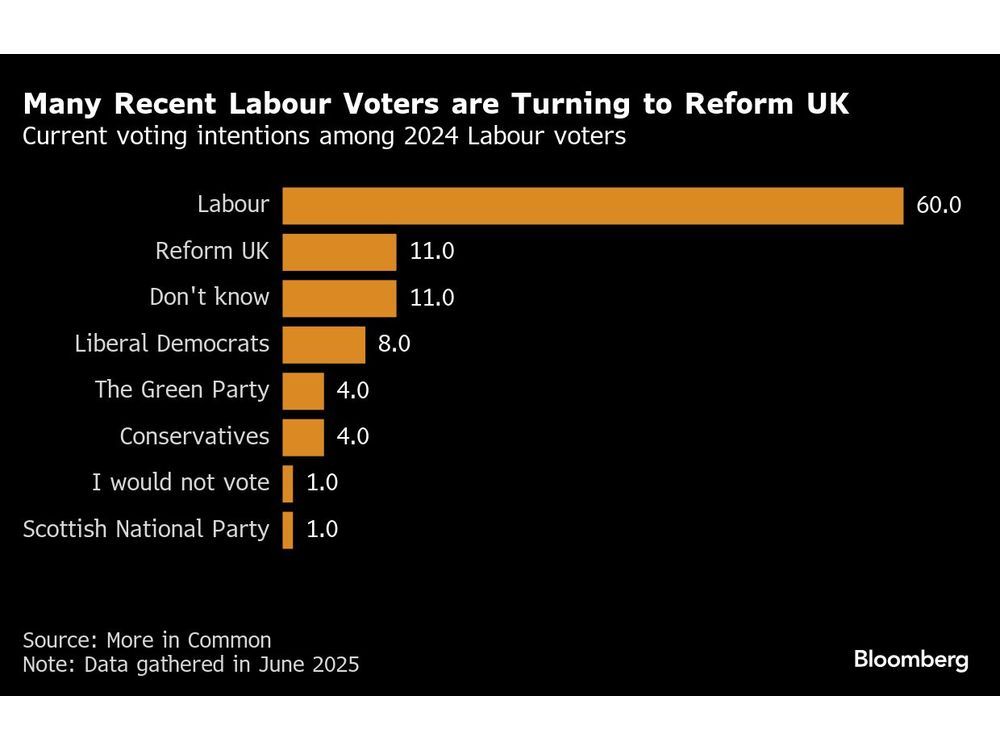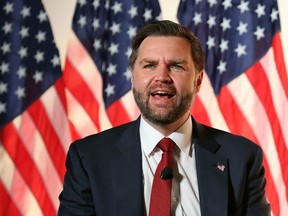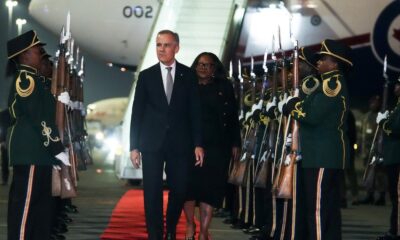Politics
Green Party Leadership Race Highlights Divisions Over Populism

The Green Party of the United Kingdom is currently engaged in a significant leadership race, with three candidates vying for the position. The candidates — Members of Parliament Ellie Chowns and Adrian Ramsay, who are running as a joint ticket, and Zack Polanski — represent divergent strategies for navigating Britain’s complex political landscape. While they all acknowledge the opportunity arising from the fragmentation of the political scene, their approaches to capitalize on this moment differ markedly.
Chowns and Ramsay embody the Green Party’s foundational values of inclusiveness and cooperation. They aim to appeal to voters by promoting policies centered around equality and community engagement. In contrast, Polanski advocates for a more populist approach, seeking to attract disaffected voters who feel alienated by what he describes as the “woke language” of the left. This strategy aligns him, albeit indirectly, with the rising popularity of Nigel Farage‘s anti-immigration Reform UK party, which has outperformed Labour in recent polls.
The leadership election occurs during a challenging time for the ruling Labour Party, which experienced a significant electoral victory just a year ago but is now losing support. Many former Labour voters are gravitating towards the Greens, while an increasing number are defecting to Reform UK. Currently, both the Greens and Reform UK hold four parliamentary seats, following a recent resignation from Reform over an investigation into personal business practices.
Polanski, the party’s deputy leader in England and Wales, recognizes the growing appeal of Reform UK. Although he disagrees with Farage’s stances on immigration and climate change, he acknowledges the need for a more relatable political discourse. He expresses frustration over the current narrative surrounding environmental policies, stating that the language used by the left often alienates everyday voters. In his media appearances and social media content, he emphasizes the need to reframe what it means to be “green,” proposing ideas such as wealth taxes and a ban on private jets to resonate with a broader audience.
Critics of Polanski’s approach, including Chowns, warn of the risks associated with adopting populist tactics. Chowns argues that imitating populist rhetoric can alienate potential supporters and emphasizes the importance of presenting Green politics as appealing rather than merely populist. She highlights the party’s successful track record of engaging with communities through direct outreach, contrasting it with the oversimplified narratives often employed by populist movements.
Polling data reveals the challenges facing the Greens in reshaping their image. A recent YouGov survey indicates that only 7% of people perceive the Greens as relevant to working-class voters, while 40% view the party as primarily appealing to the middle class. Chowns asserts that the party must demonstrate its relevance to a wider demographic by addressing issues that matter to all voters.
The leadership election will see ballots open on August 1, 2023, with results announced on September 2, 2023. The outcome of this election will not determine party direction until the next general election, expected by mid-2029, as party leadership terms last for two years. Given the recent national election delays, the new leader will serve only one year in this term.
Both Polanski and Chowns recognize the need to build momentum ahead of upcoming local elections in Scotland and Wales, where Reform UK is predicted to perform well. Polanski aims to attract those disillusioned by traditional party politics, asserting that the Greens can offer relatable solutions to everyday challenges. He points to the inaccessibility of energy-efficient technologies, such as heat pumps, as a barrier for many households, underscoring the need for policies that address economic realities.
The former Labour leader Jeremy Corbyn has also entered the fray, launching a new party aimed at capturing disenchanted voters. While it remains uncertain how much support he will garner, his presence adds another layer of complexity to the electoral landscape. Notably, during his tenure, Labour secured 40% of the vote in the 2019 general election, compared to the 32% achieved by his successor, Keir Starmer, in the subsequent election.
As the Green Party navigates these dynamics, the potential for growth and influence remains. A revitalized leadership could challenge Labour from the left, particularly on economic issues. Political analyst Scarlett Maguire notes that a strong Green Party performance could compel Labour to reconsider its strategies, indicating that they should be concerned about the potential for greener policies to resonate with voters seeking change.
The outcome of the Green Party leadership race will likely shape its future direction and ability to attract a diverse voter base in the evolving political landscape of the UK.
-

 Politics4 weeks ago
Politics4 weeks agoSecwepemc First Nation Seeks Aboriginal Title Over Kamloops Area
-

 World5 months ago
World5 months agoScientists Unearth Ancient Antarctic Ice to Unlock Climate Secrets
-

 Entertainment5 months ago
Entertainment5 months agoTrump and McCormick to Announce $70 Billion Energy Investments
-

 Science5 months ago
Science5 months agoFour Astronauts Return to Earth After International Space Station Mission
-

 Lifestyle5 months ago
Lifestyle5 months agoTransLink Launches Food Truck Program to Boost Revenue in Vancouver
-

 Technology3 months ago
Technology3 months agoApple Notes Enhances Functionality with Markdown Support in macOS 26
-

 Lifestyle3 months ago
Lifestyle3 months agoManitoba’s Burger Champion Shines Again Amid Dining Innovations
-

 Top Stories2 months ago
Top Stories2 months agoUrgent Update: Fatal Crash on Highway 99 Claims Life of Pitt Meadows Man
-

 Politics4 months ago
Politics4 months agoUkrainian Tennis Star Elina Svitolina Faces Death Threats Online
-

 Sports5 months ago
Sports5 months agoSearch Underway for Missing Hunter Amid Hokkaido Bear Emergency
-

 Politics5 months ago
Politics5 months agoCarney Engages First Nations Leaders at Development Law Summit
-

 Technology5 months ago
Technology5 months agoFrosthaven Launches Early Access on July 31, 2025





















